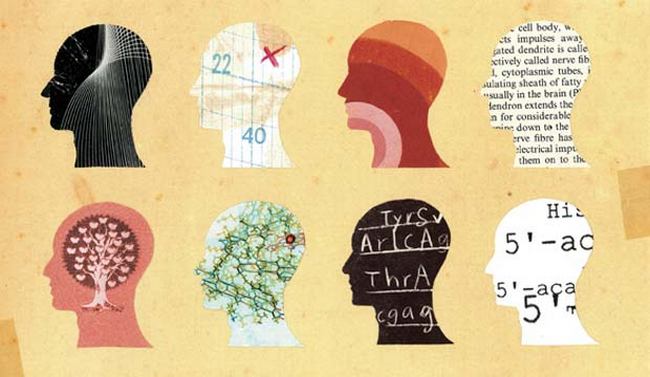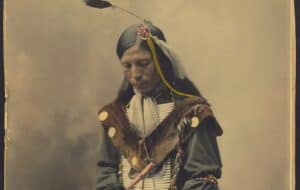
Originally published May 2018
I’m Bernie Sheahan. I’m creative…and mentally ill. There are many categories of mental illness; I’m an expert on just one.
The novelist William Styron called it “darkness visible” in his best-selling memoir of the same name; for me, depression is a gray, stoop-shouldered monster that has stalked me throughout my adult life. Three years ago, my doctor made official what others had long suspected, that I had bipolar disorder, also known as manic depression.
It’s right up there with schizophrenia in the “severe mental illness” category, but I’m somewhere between Bipolar I and Bipolar II. I may never have “classic” manic episodes (though my house could use a four-day cleaning frenzy), the kind that have a devastating effect on sufferers and their loved ones, especially when the high takes the inevitable tumble. Mine’s more like Tigger’s bounce—more diverting than dangerous.
And I’m not alone. Famous bipolar artists include the likes of John Keats, Tennessee Williams, and Georgia O’Keefe. A connection between creativity and mental illness has long been assumed. Stanford researchers have discovered in the brains of both the highly creative and the mentally ill an inability to filter outside stimuli—but that doesn’t mean mental illness necessarily gives you a creative edge.
A connection between creativity and mental illness has long been assumed…but that doesn’t mean mental illness necessarily gives you a creative edge.
That would be like saying you have to drink to be a writer. I lived in Oxford, Mississippi, for two glorious years and I breathed William Faulkner’s air. Literally every day I jogged the Faulkner-to-Faulkner route, from his grave near my apartment, past his famed Confederate soldier monument in the square, to his backyard at Rowan Oak. I gulped the cedar-scented wind and wondered every day why he drank.
Poor Mr. Will wrote about sin and pain more profoundly than nearly any American in the 20th century. He suffered crushing depressions. And he medicated himself with bourbon. As Styron wrote,“Faulkner and others drank to broaden their vision, their exaltation or despair, or to flee from the pure agony of creation.”
But I know another reason why Faulkner drank. I thought about it when I stood at his grave or when I sat in St. Peter’s Episcopal Church, where he was a member. In all his profundity, in mining the depth of Old Testament justice and mercy within the Southern psyche, Faulkner never learned to appropriate that mercy for himself. I imagine him experiencing only judgment—and at his own hands.
Faulkner never learned to appropriate mercy for himself. I imagine him experiencing only judgment—and at his own hands.
C.S. Lewis, one of his fellow Anglicans (albeit a more devout one) wrote this: “Whenever you are fed up with life, start writing: Ink is the great cure for all human ills, as I have found out long ago.” (This is taped to my laptop.)
The difference between the two writers is that while Lewis found life in the ink, Faulkner found despair. As a writer, enlivened by grace, Lewis was healed through the work (see his book, Surprised by Joy, for details). I, too, know that the work of writing helps heal.
So do loving relationships, long walks, and good medications (I’m on four). I’m thankful for all of these things, which, when I take life one day at a time, allow me not only to read the Psalmist’s words but to know what he’s talking about; to marvel at the firmament rather than get stuck to its ceiling; to acknowledge the bottom of the miry pit without wallowing in it, sucking black mud into my lungs. Living somewhere between the extremes is a good thing—and a lot less scary for those who love me.
Jesus said, “I came that you might have life, and have it more abundantly.” Those of us who are in the arts, either as creators or appreciators, experience life and its abundance on many levels, and give thanks for subtleties that others may not notice. It’s our privilege to awaken the world to beauty through what we create and appreciate with others, to reveal the Light and expose the darkness. In some of us, the darkness is painfully visible.
As artists, this is both our burden and our gift. As an artist with a mental illness and a deep faith in Christ, I live daily within this tension.
Bernie Sheahan is a writer, historian, and sometime radio host.



One Response
Hello, I enjoyed and appreciated your article. I was born with schizophrenia. Stealing from Arlo Guthrie, when I tell someone I suffer from schizophrenia they all move away. Actually the folks that move away almost ever time are my peers, middle class white folks. I have friends of color and have never had the least indication of fear. I was elected as a deacon in a local church. I had told everyone about my disease but when elected the good folk could not stand for it and pressured my pastor into asking me to step down. I didn’t and made them remove me. All but 15 years of my life, I attended church. Now I don’t bother, the pain and rejection of 47 church going years I won’t and can’t take the prejudice of my own ‘family’.
Reading Jeremiah you have to wonder. He laid naked outside the city gates, ranted and raved, declaring God’s judgement on people and the visions! Even his writing style leans towards schizophrenia. His peers saw him as delusional, grandious, running around naked, visions, hearing voices, paranoid etc . . .
All symptoms of schizophrenia. I believe God formed and saw fit to give me this burden. I see the world different but not wrong, Different colored glasses. My way of seeing scripture is different but usually I have the text in the context. I do seem to have the ability to see the forest and the trees.
My best advise, from experience, to get out of depression or to help you live with depression is to get out and help someone less fortunate than you. Time and again I watch as people deep in depression change completely. Of course, there are physical reasons for depression but the average depressed Jane or Joe I have seen this work over and over. Matt 25:31, there is something good about serving the least of these.
Any way good job. Thank You, Tim